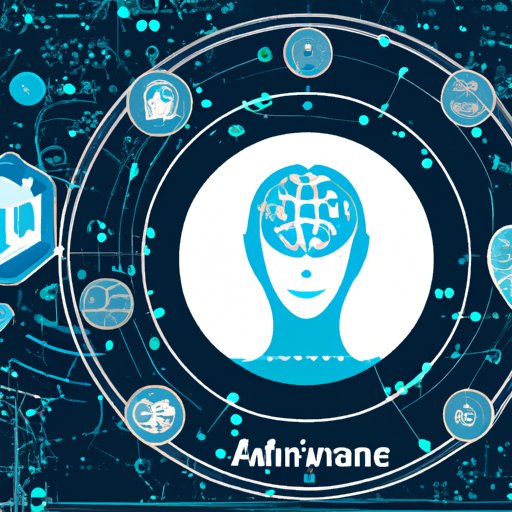Introduction
Artificial intelligence (AI) is a rapidly growing field that has seen incredible advances in recent years. From automation in business to autonomous vehicles, AI is becoming an increasingly important part of our lives. But what exactly is AI and how does it work? This article will explore the definition of AI, its development over time, and its current and potential applications in the world around us.
What is Artificial Intelligence and How Does It Work?
Before diving into the real-world applications of AI, it’s important to understand exactly what AI is and how it works. AI is a branch of computer science that focuses on creating machines capable of performing tasks that require human-like intelligence. This can include anything from facial recognition and natural language processing to decision making and problem solving.
The basics of AI involve programming computers to recognize patterns and make decisions based on those patterns. This process is known as machine learning, where algorithms are used to identify patterns in data sets and then apply them to new data. The more data the algorithm has access to, the better it can recognize patterns and make accurate predictions. As AI continues to develop, so do the types of AI available, such as supervised learning, unsupervised learning, deep learning, and reinforcement learning.
Real-World Applications of AI
AI is being used in many different ways in the real world. Businesses are using AI to automate tedious tasks, such as customer service, bookkeeping, and inventory management. In healthcare, AI is being used to analyze medical data and assist with diagnosis and treatment plans. AI is also being used in education to create personalized learning experiences for students. Additionally, AI is being used to power smart homes and smart devices, as well as autonomous vehicles.
Ethical Implications of AI
As AI continues to become more prevalent, it’s important to consider the ethical implications of this technology. One of the most pressing issues is privacy, as AI systems have access to vast amounts of personal data. Additionally, there are security concerns related to AI, as malicious actors could use AI to create malware or launch cyberattacks. Finally, there is the potential for unintended consequences, as AI systems may make decisions that have unforeseen and potentially damaging ramifications.
The Future of AI
AI is likely to continue to grow in importance in the years to come. Advances in machine learning are allowing AI systems to become even more powerful and efficient. This will lead to an even greater impact on society, as AI is used in more and more areas of life. It’s important to keep in mind the ethical implications of AI, as well as the potential for unintended consequences.
Conclusion
AI is a rapidly growing field that has seen incredible advances in recent years. This article explored the definition of AI, its development over time, and its real-world applications. Additionally, the ethical implications of AI were discussed, as well as the potential for unintended consequences. Finally, the future of AI was explored, with a focus on the growing impact of this technology on society. For those interested in learning more about AI, there are plenty of resources available to explore.
(Note: Is this article not meeting your expectations? Do you have knowledge or insights to share? Unlock new opportunities and expand your reach by joining our authors team. Click Registration to join us and share your expertise with our readers.)
